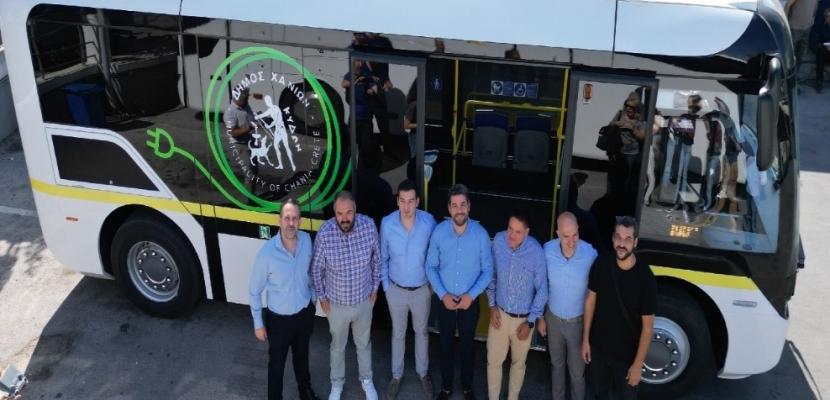
Electric transportation with vehicles and bicycles in the municipality of Chania, Crete, Greece

About this good practice
Transportation in the city of Chania, Crete, Greece is currently achieved with conventional vehicles using fossil fuels. The necessity to minimize GHG emissions is urgent for the achievement of a net-zero carbon economy by 2050. Although pure electric vehicles and hybrid electric vehicles are currently used in the private sector the percentage of electric vehicles in the total vehicles’ fleet in Crete is very low. The current practice is related with the development of electric transportationinside the city. The use of municipal electric buses and other electric vehicles in Chania has several benefits:
a) It reduces CO2 emissions due to transportation. The public sector offers a good example for the reduction of CO2 emissions, and
b) Citizens and visitors using electric buses are getting aware about electric transportation and its benefits which might mobilize them to aquire a private electric verhicle.
The main stakeholders of the current practice are the local municipality and the citizens and visitors using electric transportation. The beneficiaries are the municipality of Chania and the local society using electric transportation. Additionaly, the visitors and tourists who uses the local electric infrastructure.
More electric buses are going to be bought with the financial support of the EU structural funds. The ongoing maintenance cost of the electric buses is going to be covered from the surplus generated from a social enterprise of the municipality of Chania.
Resources needed
In order to set up and run the practice the following resources are necessary: For seting-up the practice 6 man-months of engineers are needed while the cost in Chania was at 4,104,276 €. For running the practice the same number of human resources are required as for using conventional buses.
Evidence of success
The practice is considered as good since it facilitates the low/zero carbon transportation of tourists inside the city of Chania without the use of conventional vehicles using gasoline or diesel oil. Electricication in private and public transportation is low nowdays in Greece. Municipal authorities in Crete have started to use electric buses and other electric vehicles and bicycles. The first electric municipal buses in the city of Chania are already used by tourists.
Potential for learning or transfer
The proposed practice is considered as good because:
a) It is related with the EU and national policy for net-zero carbon economy by 2050 as well as with the regional development policy in Crete,
b) It produces tangible results regarding the use of electric transportation in the city of Chania using electric buses, electric vehicles, charging stations and electric bycicles,
c) Its results are measurable regarding the number of people using electric transportation daily, the man-km covered, the carbon emission savings due to transportation daily, etc,
d) It has potential interest in other regions having similar regional development policies related with the achievement of net-zero carbon emission economy by 2050.
Assuming that each electric bus covers a distance of 50 km per day having an occupancy rate on average at 20 passengers the carbon emission savings are estimated at 245 tnCO2 per day. The total annual carbon emission savings are estimated at 89,425tnCO2.
Further information
Documents
Municipality of Chania.docx detoca.docx
Website
Good practice owner
You can contact the good practice owner below for more detailed information.
Mediterranean Agronomic Institute of Chania (CIHEAM MAICh)
